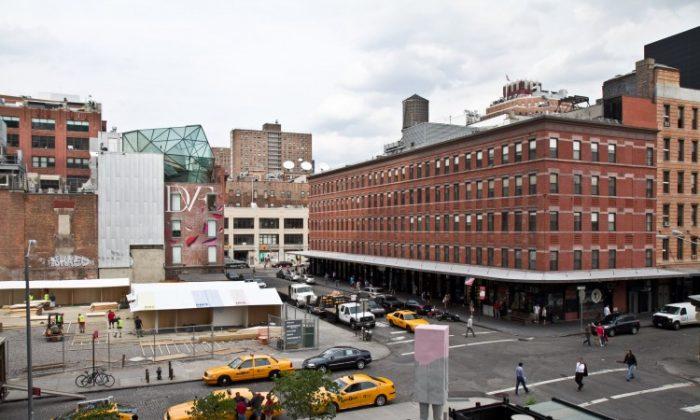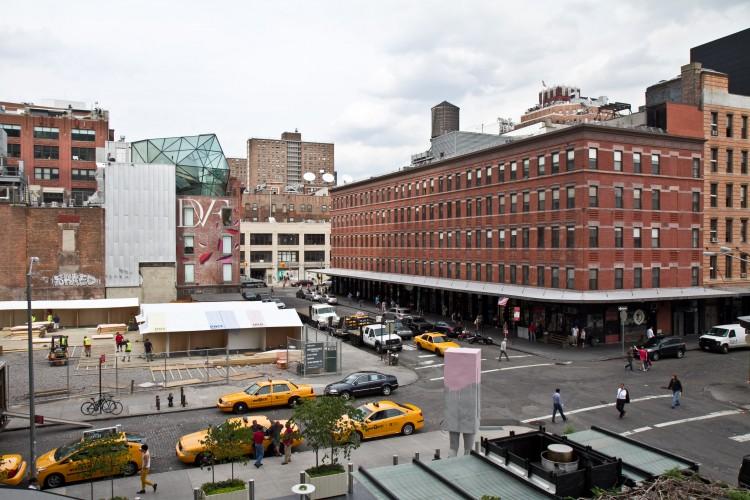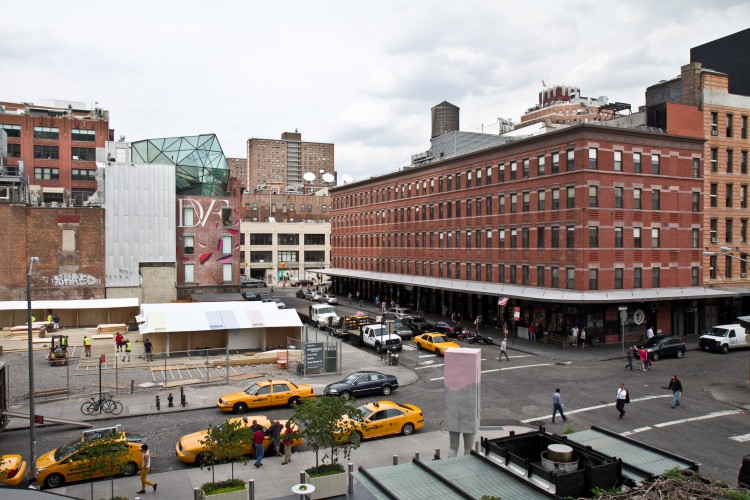NEW YORK—Job growth in the technology sector remains strong in New York City. The city ranked second in a recent nationwide report (pdf) by commercial real estate company CBRE. The 22 percent job growth and 17 percent rental growth came in lower than San Francisco (41 percent and 44 percent respectively), but higher than Silicon Valley (18 percent and 26 percent respectively).
“What was surprising was the strength of growth in New York City, and I think a big part of that has to do with the intersection between media and entertainment and technology,” said Colin Yasukochi, co-author of the report, and director of research and analysis for CBRE.
Tech companies are attracted to New York City because transportation makes face-to-face meetings easy; advertising agencies are abundant (an important component of social media); and other sectors related to technology, such as fashion and finance, are easy to reach, said Erik Grimmelmann, vice chairman of the New York Technology Council.
Attendance at the council’s events has tripled over the last year, Grimmelmann said.
Membership of the nonprofit New York Tech Meetup, a platform for startups and a resource for entrepreneurs, has grown from 7,500 in October 2008 to 26,418 now, according to its website.
The number of accelerators, which help fund startups, in New York City has increased from zero in 2008 to 12 in 2012, according to a report (pdf) published earlier this year by the Center for an Urban Future. Co-working spaces, where individuals and small companies share space, have also expanded. For example, Projective Spaces has two co-working places, one in SoHo and one on the Lower East Side. The latter grew from 34 members at its opening in January to 85 three months later, and James Wahba, the founder, said he gets four new requests every day.
New York City tech companies will also help traditional industries—including health and media—become more innovative, said Jonathan Bowles, executive director of the Center for an Urban Future. “Technology today is no longer about building a semiconductor or doing big enterprise software systems,” he said.
Silicon Valley and San Francisco have higher growth rates than New York due to the head start they had, said Grimmelmann. Larger companies such as Facebook, Google, and Twitter expanded in California before coming to New York City.
But growth in New York is still exciting, Grimmelmann said. “It’s not just the growth now; it’s laying the foundation for the future growth we'll have here. The startups will end up mentoring the next generation.”
Well-known tech companies including Google, Yahoo, and LinkedIn have offices in the city, and many companies are expanding and creating more jobs. Cornell NYC Tech will open in the fall in Google’s office space in Chelsea and expand onto Roosevelt Island in the future. General Assembly’s educational tech campus in Flatiron provides classes and resources. Incubators opening up around the city provide a boost to startups.
High-tech jobs grew 6.3 percent (almost 60,000 jobs) in 2010 in New York City, according to analysis by Jones Lang LaSalle.
CBRE, the global research and consulting firm, studied 20 tech-office markets in the United States. New York City, San Francisco (and its peninsula), and Silicon Valley are the only areas to experience significant growth in both the job and rental markets over the last two years.
“Even though tech is growing really strongly, it still represents a relatively small share in the rental market,” said CBRE’s Yasukochi. The exception is in the submarket Midtown South, where tech companies’ growth has propelled the area forward amid a flat market elsewhere. The area has grown 24 percent comparing Q2 of 2010 and Q2 of 2012, according to CBRE.
Due to a low vacancy rate in Midtown South, including Chelsea (4.2 percent), Madison/Union Square (4.4 percent), and SoHo (2.9 percent), tenants are now starting to look at Downtown or Midtown alternatives, according to a second-quarter market analysis by Cushman & Wakefield. Rents in the area are on average $49.43 per square foot; an increase of almost 11 percent year over year, according to the firm.
The next big push in the city will branch out into the Meatpacking District and SoHo, including from tech companies expanding into retail, according to Faith Hope Consolo, chair of Prudential Douglas Elliman’s Retail Leasing and Sales Division.
Consolo said she is working with three companies, including Microsoft, on finding storefront space—much like Apple’s earlier expansion into retail.








Friends Read Free